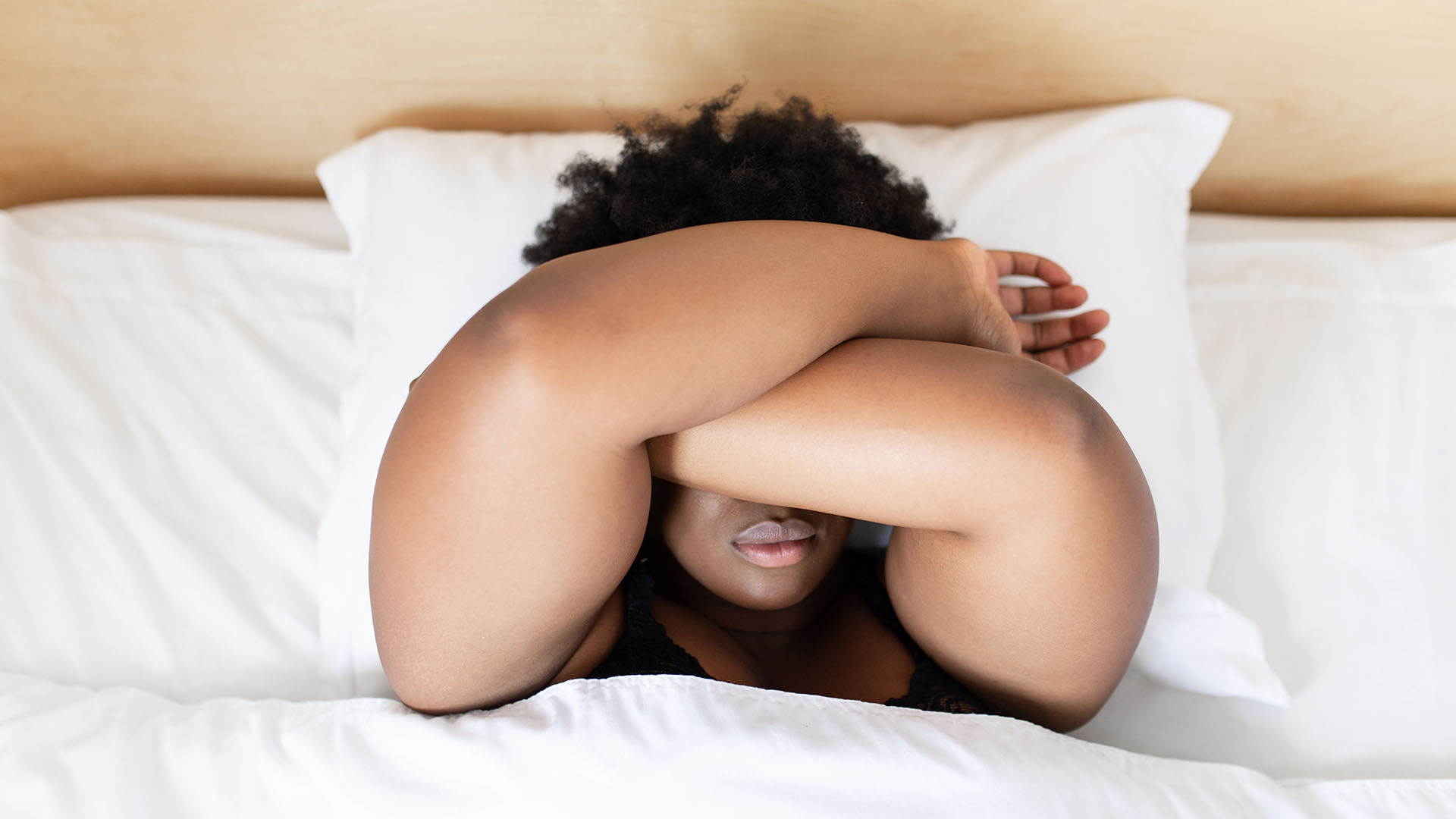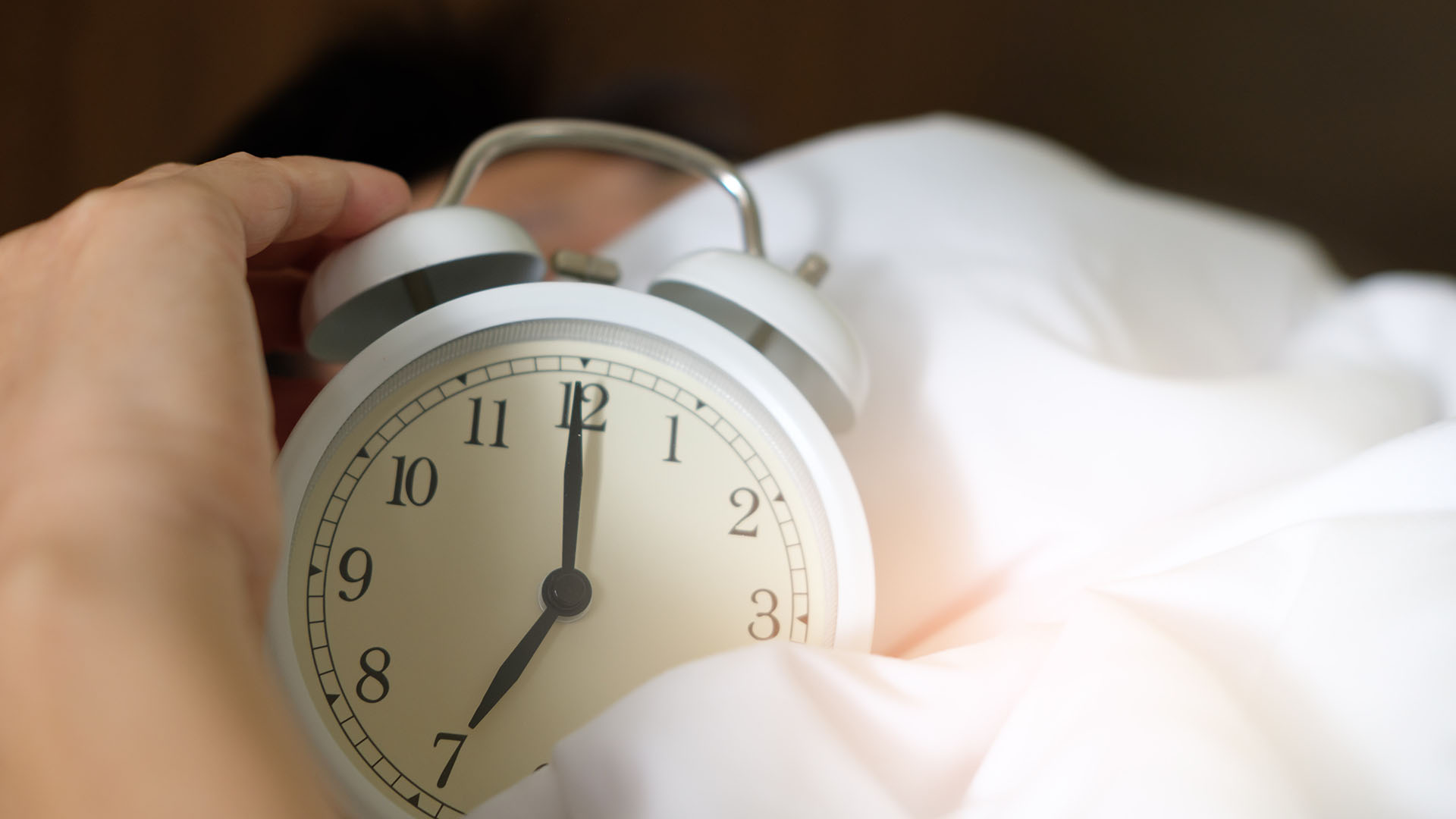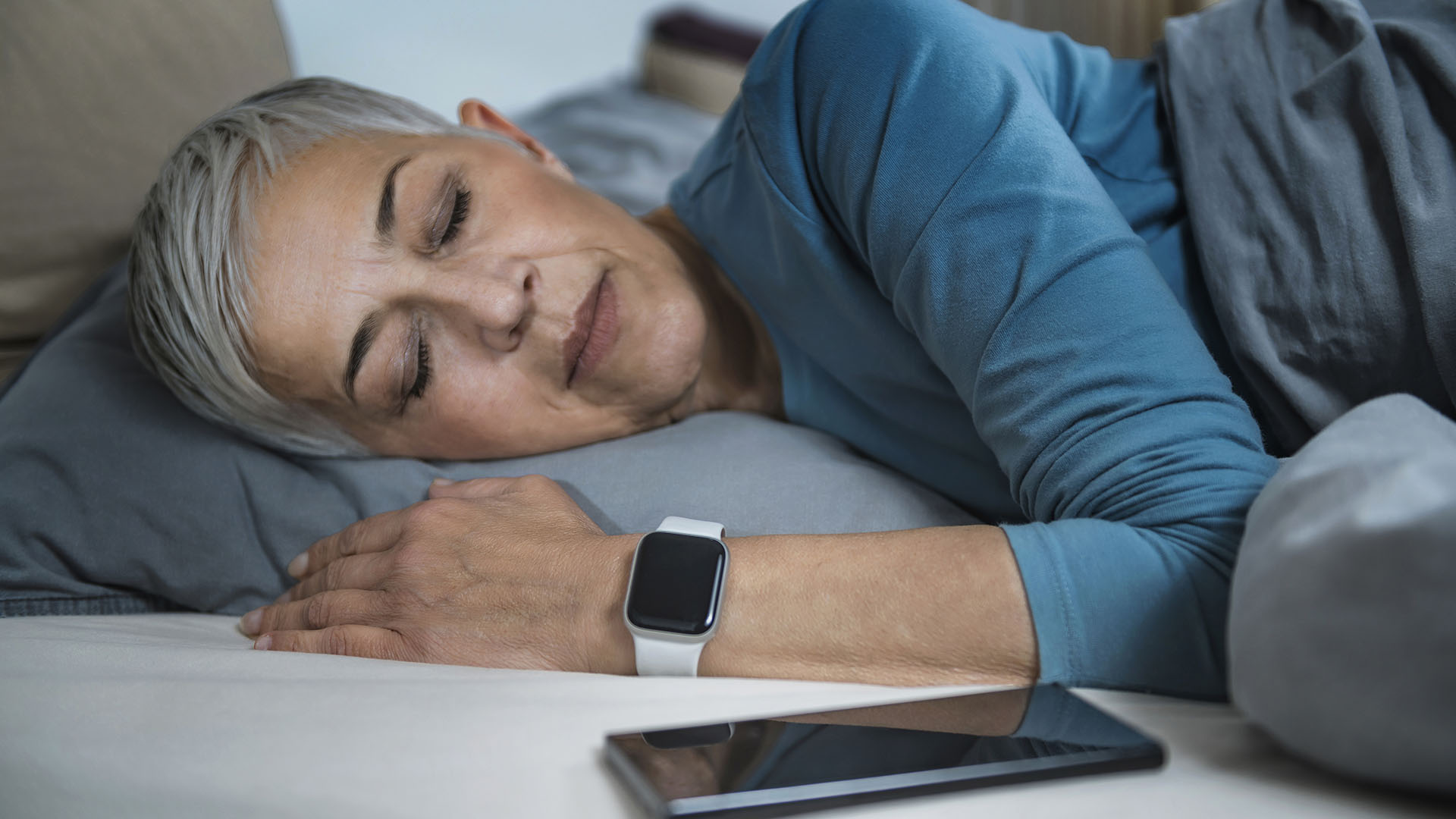Is 8 hours of sleep enough? We asked the sleep experts
Still sleepy after eight hours of sleep? Here's why

If you've woken up and thought 'Is 8 hours of sleep enough?' then you're not alone. Getting enough sleep every night is the best way to wake up feeling alert and ready for the stresses of the day. Clocking up enough hours in bed is also great for our physical and mental health – keeping viruses and anxiety at bay. But what if you're getting 8 hours of sleep and night but you're still waking up tired?
Here we talk to two sleep experts on whether 8 hours of sleep is enough, how you can increase your quality of sleep, and if oversleeping is ever good for us.
- Read more: Man sleeps for 30 minutes a night to 'double his life' — but does it work? A doctor responds
- 3 quick ways to sleep fast come day or night— no sleep aids required
How much sleep is recommended per night?
While many of us seem to survive on little to no sleep some nights, the National sleep Foundation recommends we should be getting between 7-8 hours of sleep a night. But, Dr Nerina Ramlakhan, sleep expert and author of Finding Inner Safety, says it's different for all of us and there is no 'magic number'.
"Listening to your body and understanding how much restorative rest you need to feel energized is key to understanding your sleep-wake cycle," she explains. "Having said this, it is not the quantity of sleep but the quality you are getting that's important. Deep, nourishing sleep that is restorative and healing is what we should be aiming for."
If you have a fitness tracker or a smartwatch, with a feature to track your sleep it's a great idea to wear it at bedtime to record your sleep metrics. Ideally, you should be getting a mixture of sleep which falls into three stages – light, REM and deep.
Why do I still feel tired after 8 hours of sleep?
So, what if you regularly get eight hours and still feel tired? Dr Ramlakhan reiterates that it's all about the quality of sleep – so a 12pm bedtime, falling asleep in front of Netflix, won't necessarily give you the same quality as going to bed at 10 after meditation and no blue light for a couple of hours.
"Even 10 hours of fragmented or poor-quality sleep won't be as beneficial as seven hours of undisturbed, restorative sleep. If you feel tired after long hours of sleep chances are you need to establish a new healthy sleeping pattern," says Dr Ramlakhan.
Sign up to get the BEST of Tom's Guide direct to your inbox.
Get instant access to breaking news, the hottest reviews, great deals and helpful tips.
While Amy Korn-Reavis, a Sleep Specialist Coach at BetterUp, says it could be to do with your sleep stages, especially if you wake up during REM sleep: "During REM, we produce hormones that keep us from acting out our dreams. However, when an alarm goes off during REM, your body must clear those hormones, which is usually when you wake up feeling tired. This usually improves quickly once you start moving around."

How can you improve your quality of sleep?
So, how do you change your quality of sleep? A consistent sleep schedule. "Going to bed and waking up at the same time every day will help to maintain your circadian rhythm, which is the body's internal clock – responsible for our ability to fall asleep at night and wake up in the morning."
While going to bed early isn't just good for the soul, but our sleep patterns too. “Our sleep before midnight is the most restorative phase of sleep, so getting to bed before or around 10 pm at least 3-4 nights is beneficial for gaining the really deep, nourishing slumber that sets up our energy levels for a happy and productive day."
If you're a night owl, glued to your phone before you fall asleep Dr Ramlakhan says it's vital to set healthy boundaries with technology and work time. "The blue light from devices also impacts the sleep cycle. Ideally, your phone should not be the last or first thing you look at before you turn your light out or the first thing when you wake up."
If it's aches and pains that's keeping you up, your bed could be to blame. Our best mattress guide has recommendations for a range of sleep styles and budgets (if you're not in a particular rush, we're expecting plenty of great Black Friday mattress deals to start arriving in November).

What are the dangers of oversleeping?
If you think you can burn the candle at both ends through the week, then make up for it by oversleeping on the weekends, then we have some bad news for you – oversleeping can be just as bad for you as no sleep can.
“When oversleeping the body and mind can feel sluggish and foggy the next day. My advice is to ensure you get plenty of exercise, eat healthily and drink plenty of water during the day," explains Dr Ramlakhan.
While she also goes on to explain, if you want to stop oversleeping you need to set out some non-negotiables for your routine such as eating breakfast, no technology in the bedroom and a relaxing routine before bed
“Once these routines are established you will notice your quality of sleep becoming better – sleeping deeper and in a more nourishing way. This will help your body wake at the optimum time and enable you to avoid oversleeping, increasing your energy levels."
However, Korn-Reavis says that oversleeping could be a sign of something more serious, such as sleep apnoea, anemia or vitamin deficiency.
“If this is something new and you are not sure, consider following up with your primary care physician. We may also oversleep when we are feeling down or depressed. If you are finding that you do not want to get out of bed or that you are sleeping 9+ hours, then you might want to consider talking to a mental health professional."
Sarah is a freelance writer who has been published across titles including Woman & Home, The Independent, and the BBC. Sarah covers a variety of subjects, including health and wellness. For Tom's Guide Sarah often writes about sleep health and hygiene, and interviews leading sleep experts about common issues such as insomnia and sleep deprivation.

